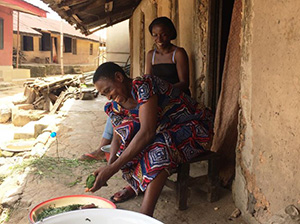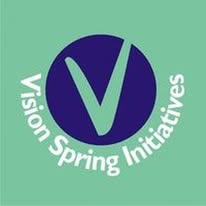In the vast and diverse landscape of Nigeria, indigenous women play a crucial role in upholding cultural heritage and traditions. However, the shrinking civic space poses significant challenges to their ability to preserve their culture and assert their rights within their communities and society at large. Indigenous women often find themselves at the crossroads of tradition and modernity, grappling with issues unique to their identities. In this context, Vision Spring Initiatives (VSI) is dedicated to empowering indigenous women in Nigeria, enabling them to overcome obstacles and safeguard their culture and rights.
Challenges Faced by Indigenous Women in Nigeria:
- Cultural Erosion: Rapid modernization and urbanization threaten the preservation of indigenous cultural practices, languages, and knowledge systems.
- Marginalization: Indigenous women are often marginalized within their communities and face multiple layers of discrimination based on their gender and indigenous identity.
- Limited Access to Education: Educational disparities hinder Indigenous women’s opportunities for personal growth, advocacy, and participation in decision-making processes.
- Health Disparities: Indigenous women often lack access to quality healthcare services, leading to adverse health outcomes and affecting their overall well-being.
- Violence and Discrimination: Gender-based violence and discrimination disproportionately affect indigenous women, with limited access to justice and support services.

For the Nigerian Government:
- Strengthen Legal Protections: Enact and enforce legislation that addresses gender-based violence, and discrimination, and ensures the rights of indigenous women to cultural preservation and land ownership.
- Inclusive Policies: Develop policies that promote the inclusion of indigenous women in decision-making processes, ensuring their perspectives are integrated into development plans.
For NGOs and Activists:
- Collaborative Initiatives: Collaborate with indigenous communities to design and implement programs that address the unique challenges faced by indigenous women, including cultural preservation and gender equality.
- Advocacy and Awareness: Raise awareness about the issues affecting indigenous women through advocacy campaigns, media engagement, and public forums to generate support for their rights.
For Civil Society Organizations:
- Capacity Building: Offer training and capacity-building programs that equip indigenous women with skills in advocacy, leadership, and community organizing to amplify their voices.
- Cultural Preservation: Support initiatives that document and preserve traditional knowledge, languages, and practices of indigenous communities, empowering them to pass on their heritage to future generations.
For Other Stakeholders:
- Inclusive Dialogue: Create platforms for indigenous women to engage in dialogue with policymakers, community leaders, and other stakeholders, ensuring their concerns are heard and addressed.
- Access to Services: Improve access to quality healthcare, education, and social services in indigenous communities, bridging the gaps that hinder the well-being and development of indigenous women.
Through these comprehensive recommendations, Vision Spring Initiatives aims to foster an environment where indigenous women can fully exercise their rights, preserve their culture, and contribute to the social and economic progress of Nigeria. By working collectively with the Nigerian government, NGOs, activists, and other stakeholders, we can create a brighter future for indigenous women, where their voices are valued, their rights are upheld, and their heritage is celebrated.
